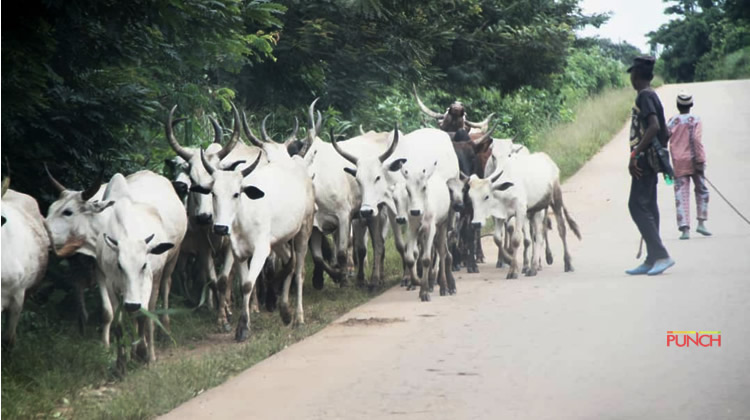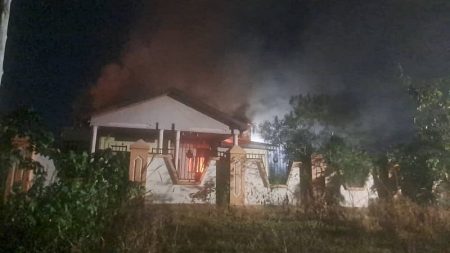Paragraph 1: Ranching Gains Momentum as States Seek Solutions to Herder-Farmer Conflicts
Eleven states across Nigeria are actively pursuing ranching as a viable solution to the persistent and deadly clashes between herders and farmers. This initiative comes amid a surge in violence attributed to armed herders, including the recent massacre of over 200 people in Benue State. President Bola Tinubu, condemning the violence as land-grabbing, has established a peace committee and ordered the arrest of the perpetrators. The states embracing ranching include Lagos, Plateau, Ondo, Zamfara, Bauchi, Delta, Niger, Kano, Jigawa, Nasarawa, and Anambra. They represent a diverse geographical spread, indicating a growing recognition of ranching as a potential path to peace and agricultural stability.
Paragraph 2: Lagos Leads the Way, Emphasizing Collaboration and Existing Anti-Open Grazing Law
Lagos State stands out as a pioneer in developing its ranching system, welcoming collaboration with the Federal Government and other stakeholders. The state has already secured land and is developing infrastructure, with plans to allocate plots to private sector organizations to establish cattle ranches. Lagos boasts an existing anti-open grazing law, making it an offense to allow cattle to roam freely. Residents largely support ranching, citing its sustainability, security, and economic benefits compared to open grazing. Some advocate for cattle owners to purchase their own land for grazing if they prefer that method, highlighting a growing intolerance for practices perceived as disruptive and unsafe.
Paragraph 3: Mixed Reactions and Concerns Emerge in Other States
While many states are receptive to ranching, some have expressed reservations. Anambra State supports the concept in principle and is working with the Federal Government, highlighting its existing anti-open grazing law. However, some residents view ranching as preferential treatment for certain groups, criticizing the use of state lands for private business interests. Similarly, Ondo State, while already operating ranches, has not formally partnered with the Federal Government but remains open to investors. Zamfara State, heavily impacted by herder-farmer conflicts, wholeheartedly supports ranching and is ready to provide land. Nasarawa State has already allocated a substantial 22,000 hectares for a model ranching hub.
Paragraph 4: Cautious Approaches, Ongoing Debates, and Focus on Transparency
Plateau State, while not banning open grazing, is actively promoting ranching and partnering with the Federal Ministry of Livestock Development. Adamawa State, while yet to receive an official request for land, has already allocated land for pasture development. Gombe State, recipient of a substantial N60 billion federal grant for an agro-livestock hub, faces mixed reactions from residents. While some welcome ranching as a solution to conflict and a pathway to economic development, others, particularly in rural communities, express concerns about displacement and a lack of consultation. There’s a strong call for transparency in the use of funds and a focus on community inclusion.
Paragraph 5: Varying Stances and Concerns Over Land Use and Security
Benue State, despite its anti-open grazing law and advocacy for ranching, remains undecided on allocating land to the Federal Government, reflecting lingering distrust and trauma from past violence. Edo State has also not made a decision, with calls for careful consideration of policy implications. Kwara State is exploring a hybrid approach, combining ranching with improved water resources for open grazing in designated areas. Oyo State reaffirms its commitment to its anti-open grazing law, actively enforcing it with arrests and fines for violators. Bayelsa State, while already having land set aside for grazing, presents a divided public opinion, with some supporting ranching and others fearing potential land grabs.
Paragraph 6: Political Opposition and Calls for Legal Frameworks
Imo State sees opposition from the PDP, who view ranching as a private business venture unsuitable for government involvement. Conversely, academics advocate for a legal framework to guide ranching’s implementation, emphasizing its potential to end conflicts and boost the agro-livestock economy. The diverse range of responses across the states underscores the complexities of the issue, with concerns ranging from security and land ownership to economic viability and community acceptance. The success of ranching initiatives will depend on addressing these concerns through transparent planning, community involvement, and effective legal frameworks.














